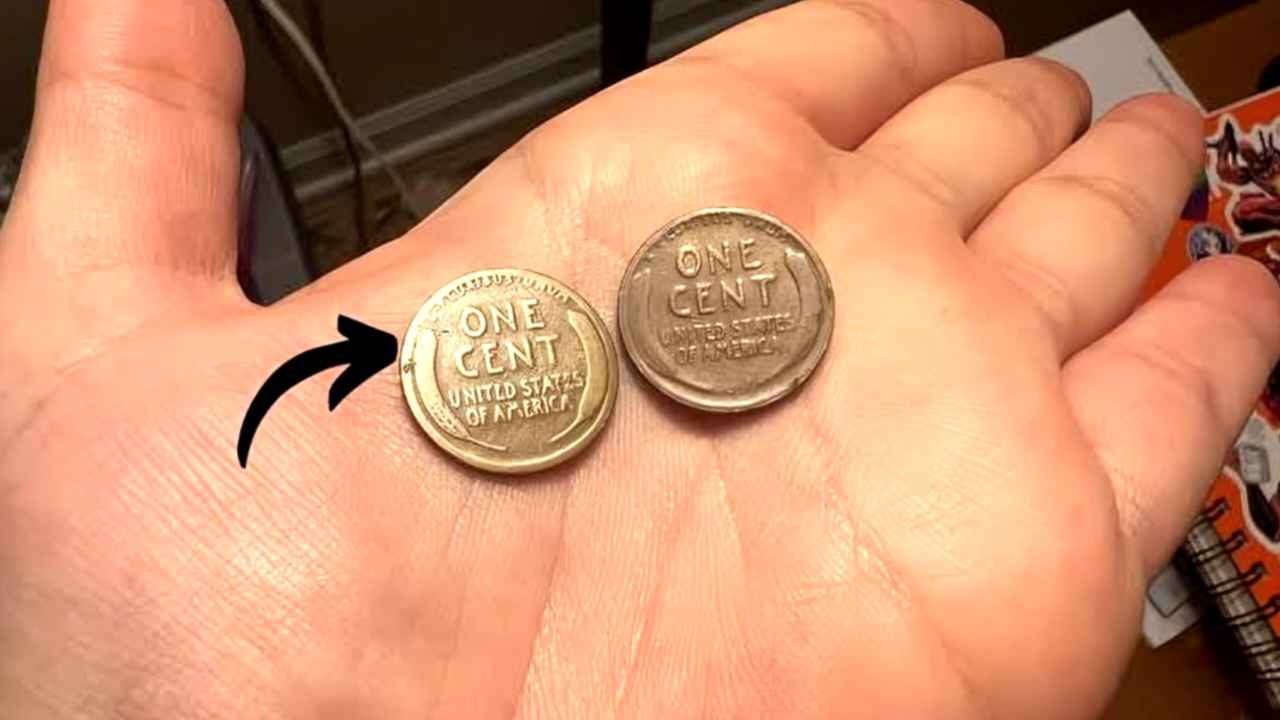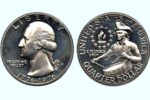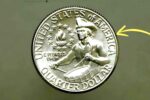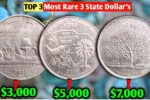6 Rare Bicentennial Quarter – $310 Million value in market
The Bicentennial Quarter, released in 1976, celebrates 200 years of American independence. While millions were minted, a few rare versions have skyrocketed in value, with some collections reaching an astonishing $310 million in the coin market.
This article explores six of the rarest Bicentennial Quarters, their unique features, and why collectors are willing to pay millions for them.
| Quarter Details | Estimated Value | Key Features |
|---|---|---|
| 1976-S Silver Proof Quarter | Up to $15,000 | 40% silver, mirror-like finish |
| 1976-D Doubled Die Quarter | 5,000−10,000 | Visible doubling on design elements |
| 1976-S Clad Proof Quarter | 1,000−3,000 | Copper-nickel, high-quality strike |
| 1976 No Mint Mark Quarter | 2,500−5,000 | Rare Philadelphia issue (no mint mark) |
| 1976-S Silver MS-65 Quarter | 8,000−20,000 | Mint state, high-grade silver |
| 1976 Type II Bi-Centennial Quarter | 500−2,500 | Bold lettering, clearer design |
1. 1976-S Silver Proof Quarter (Value: Up to $15,000)
Why Is It Valuable?
The 1976-S Silver Proof Quarter is one of the most sought-after versions. Unlike regular quarters, this one contains 40% silver, giving it intrinsic metal value.
Key Features:
-
Mirror-like finish (proof strike)
-
Sharp, detailed design
-
“S” mint mark (San Francisco)
Market Demand:
Collectors love this coin for its rarity and silver content. In top condition, it can sell for 10,000to15,000.
2. 1976-D Doubled Die Quarter (Value: 5,000−10,000)
Why Is It Valuable?
A doubled die error occurs when the coin’s design is stamped twice, creating a visible overlap. This mistake makes the coin extremely rare.
Key Features:
-
Clear doubling on letters & numbers
-
“D” mint mark (Denver)
-
Highly collectible error
Market Demand:
Error collectors pay top dollar for this coin, with prices ranging from 5,000to10,000 depending on condition.
3. 1976-S Clad Proof Quarter (Value: 1,000−3,000)
Why Is It Valuable?
This version was made for collectors and has a copper-nickel composition. Though not silver, its perfect strike makes it valuable.
Key Features:
-
Deep mirror-like shine
-
“S” mint mark
-
Low mintage compared to regular coins
Market Demand:
High-grade examples sell for 1,000to3,000, especially if still in original packaging.
4. 1976 No Mint Mark Quarter (Value: 2,500−5,000)
Why Is It Valuable?
Most quarters have a mint mark (D or S), but some Philadelphia Mint coins have no mint mark, making them rare.
Key Features:
-
No “P” mint mark (Philadelphia issue)
-
Only a few confirmed specimens exist
Market Demand:
Because of their scarcity, these quarters can fetch 2,500to5,000 at auctions.
5. 1976-S Silver MS-65 Quarter (Value: 8,000−20,000)
Why Is It Valuable?
Graded MS-65 (Mint State), this coin is in near-perfect condition with no wear. The 40% silver content adds extra value.
Key Features:
-
Brilliant, uncirculated luster
-
Strong strike details
-
Certified by grading companies (PCGS/NGC)
Market Demand:
Serious collectors pay 8,000to20,000 for high-grade examples.
6. 1976 Type II Bi-Centennial Quarter (Value: 500−2,500)
Why Is It Valuable?
The Type II version has bolder lettering and clearer design elements than the standard Type I.
Key Features:
-
Easier-to-read inscriptions
-
More defined drum & torch details
Market Demand:
While not as expensive as others, Type II quarters still sell for 500to2,500 in top condition.
Why Are These Quarters Worth Millions?
A complete set of these rare Bicentennial Quarters in high grades can reach $310 million in private sales. Factors affecting value:
✅ Rarity – Fewer surviving specimens mean higher prices.
✅ Condition – Uncirculated or proof coins sell for more.
✅ Demand – Collectors and investors drive up prices.
Frequently Asked Questions (FAQs)
1. How can I tell if my Bicentennial Quarter is rare?
Look for:
-
“S” mint mark (San Francisco)
-
Silver content (weighs more than a regular quarter)
-
Doubled die errors (misprinted design)
2. Where can I sell a rare Bicentennial Quarter?
-
Coin dealers
-
Auction houses (Heritage Auctions, eBay)
-
Online coin forums
3. Are all 1976 quarters valuable?
No, only special mint marks, errors, or silver versions are valuable. Most circulated quarters are worth face value.
4. What’s the most expensive Bicentennial Quarter ever sold?
A 1976-S Silver MS-69 graded by PCGS sold for over $20,000.
5. Should I clean my old quarters to increase value?
Never clean coins! Cleaning reduces their value. Keep them in original condition.
Final Thoughts
The Bicentennial Quarter is more than just pocket change—some rare versions are worth thousands or even millions. If you have one, get it authenticated by a grading service like PCGS or NGC.
Who knows? You might be sitting on a fortune without even realizing it!




